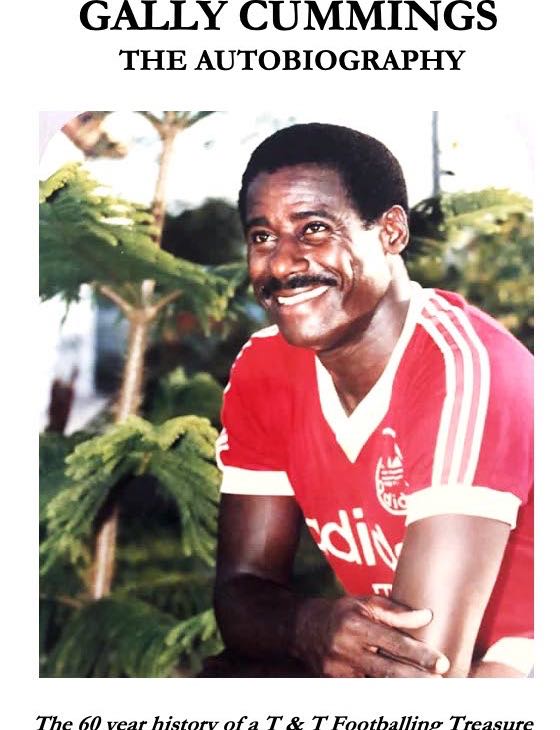Every single person who has ever lived to the age of 40 or beyond has at least one story worth telling.
Obviously only a very tiny minority ever get around to telling that story or attain such prominence that others feel it incumbent to portray that presumably remarkable life and re-tell that particularly unique story every so often and place it in the context of the changing times.
There doesn’t appear though to be a great regard academically for life stories told by, or on behalf of, significant sporting personalities as they are perceived to be quite boringly formulaic with chapters devoted to variations of My Greatest Moment, My Greatest Disappointment and the odd controversy, or even the occasional scandal thrown in to add some spice to what is really a quite tedious narrative.
On the other hand, the really thoughtful, heavyweight contributions seem to lean too heavily towards impressing the professorial types. Take CLR James’ Beyond A Boundary as an example. Since first published in 1963, it continues to be celebrated as a masterpiece of sports writing and socio-political commentary by the celebrated Trinidadian academic and activist.
My simple mind found much of the first half of the book to be very insightful and thought-provoking while the rest of it was a real struggle to make sense of James’ apparent attempt to impress his English audience with references to themes and subjects which could be loosely defined as European classical education.
With Everard “Gally” Cummings’ autobiography, there are no subtleties. Almost every page reverberates with the barely-concealed anger and impatience of someone who feels the story must be told first-person to defend his name and present the “true facts”—Colm Imbert’s trademark phrase which “Gally” repeated in our discussion on Morning Edition on TV6 last Tuesday—because too many have misrepresented too many issues for too long (at least in his eyes) and if it takes 387 pages to address the perceived injustices, so be it.
Somewhere in the Lange Park home of the former national footballer and national coach is an axe handle. Why just the handle? Because the blade has been ground down to the wood and the dust of what appears to be an enthusiastic and long-overdue endeavour is sprinkled liberally across the 25 chapters. If the sub-title as The 60-Year History Of A T&T Footballing Treasure comes across as presumptuous, it is only because the man who broke new ground for this country in the professional game, who starred on the field in the midst of the glaring injustice in Haiti in 1973 and then as head coach when the eventually failed “Road to Italy” campaign in 1989 galvanised the nation as never before, tells his story with the thinly-veiled rage of someone who feels his achievements in the game have been deliberately misrepresented and marginalised across the decades by an array of personalities with an assortment of nefarious agendas.
In what jumps off the pages as “Gally’s” binary perspective there are no shades of grey, just plain old black and white. This in stark contrast to the conciliatory, almost apologetic tone of another former national footballer (and cricketer) and national coach Alvin Corneal, who breezed through a lifetime of experiences on and off the field of play in just 160 pages in 2012 and even when touching on his own encounters with discrimination and injustice seemed inclined to offer the wrongdoers the benefit of the doubt.
While Corneal, a senior national footballer when still at Fatima College more than ten years before Cummings brought similar honour to the same Mucurapo Road institution, is apparently no favourite of the younger man, the real indictment is saved for the irrepressible “Jack” Warner, whose admission of over-selling tickets for the decisive World Cup qualifier against the USA on November 19, 1989 at the then National Stadium is condemned by “Gally” as “one of the most cruel, criminal and treasonous acts ever committed in the history of our small nation.”
By the way, if your intention is to be cast in a good light by the Most Valuable Player at that ill-fated World Cup qualifying tournament in Port-au-Prince, it is clearly useful to be a supporter of the People’s National Movement.
Before getting a copy of the book—gifted by “Gally” himself—I told media colleague Garth Wattley that I expected the autobiography to be like ANR Robinson’s: free of any genuine admission of error of judgement. I was wrong.
“Gally” states that starting Dwight Yorke in the critical USA game was a mistake, yet in explaining that he felt the striker “was trying to preserve himself for his bright professional career,” there is still the inference of selfishness by someone else.
If Everard Cummings was a boxer, I can’t imagine too many fights going the distance.

